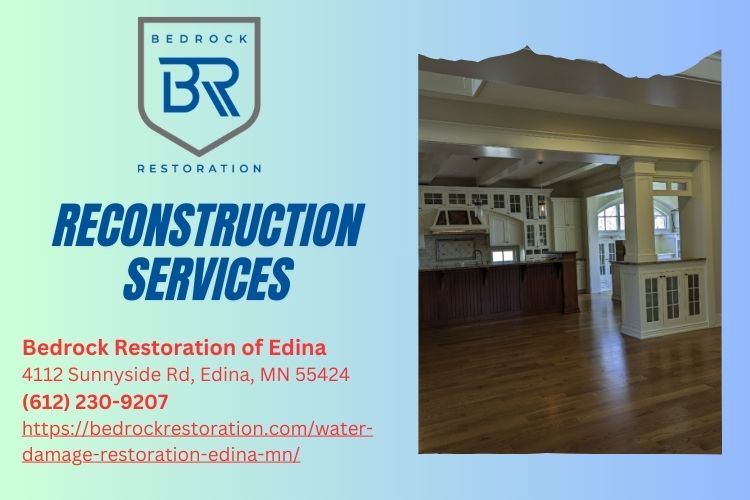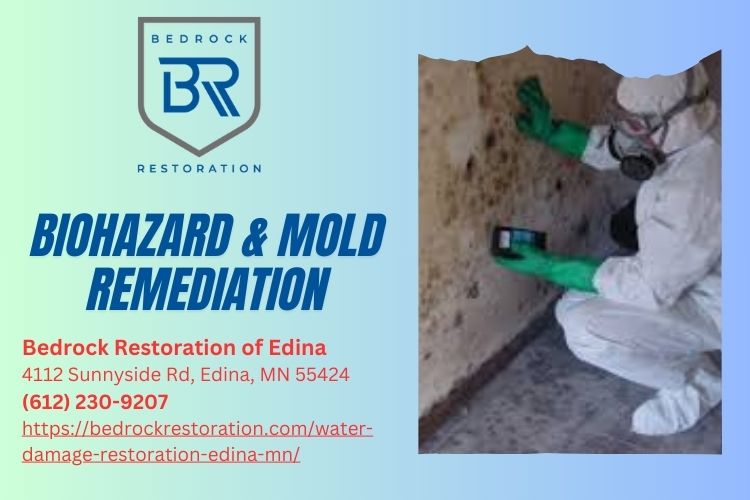Introduction
Water damage is not just an inconvenience; it can lead to severe structural issues and health risks if not addressed promptly. For residents of Edina, MN, understanding the latest techniques in water damage restoration is crucial to ensuring their homes remain safe and healthy. This article aims to explore innovative methods and practices that are reshaping how we deal with flood damage restoration.
The Latest Techniques in Water Damage Restoration for Edina, MN Residents
Water damage restoration services have evolved considerably over the years. With advancements in technology and a deeper understanding of water damage's effects on structures and health, professionals can now offer more effective solutions. Here, we'll delve into some of the most impactful techniques currently employed in Edina.
1. Advanced Moisture Detection Tools
Why Moisture Detection Matters
Detecting moisture is the first step in any effective water damage restoration process. Traditional methods often miss hidden dampness that could lead to mold growth or structural decay.

Types of Moisture Detectors
- Infrared Cameras: These devices use thermal imaging to identify temperature differences caused by moisture. Moisture Meters: Handheld devices measure moisture content in various materials, helping professionals pinpoint problem areas.
2. High-Efficiency Air Movers
What Are Air Movers?
Air movers are essential tools in the drying process following water intrusion. They circulate air rapidly to facilitate evaporation.
Benefits of Using High-Efficiency Models
High-efficiency air movers can reduce drying time significantly, minimizing the potential for further damage. This efficiency is particularly crucial during flood events when time is of the essence.
3. Dehumidification Techniques
Importance of Dehumidification in Flood Damage Restoration
After a flooding incident, humidity levels can skyrocket, creating an environment conducive to mold growth.
Modern Dehumidifiers
- Desiccant Dehumidifiers: These units absorb moisture from the air without cooling it down, making them ideal for warmer climates. Refrigerant Dehumidifiers: These work by cooling air to condense moisture but may not be as effective at lower temperatures.
4. Structural Drying Methods
What is Structural Drying?
Structural drying involves repairing and restoring building materials after they’ve absorbed excess moisture.
Techniques Employed in Structural Drying
- Controlled Demolition: This technique involves removing damaged materials like drywall or flooring to prevent further issues. Cavity Drying: Involves using specialized equipment to dry wall cavities where moisture may linger unnoticed.
5. Mold Remediation Strategies
Recognizing Mold Risks Post-Water Damage
Mold can start growing within 24-48 hours after water exposure, making immediate action critical.
Effective Mold Remediation Techniques
- Containment and Removal: Professionals isolate affected areas before safely removing mold-infested materials. Anti-Microbial Treatments: After removal, surfaces are treated with anti-microbial agents to inhibit future growth.
6. Eco-Friendly Restoration Practices
Why Go Green?
With increasing awareness about environmental concerns, many restoration companies now prioritize eco-friendly methods.
Sustainable Materials and Techniques
water damage restoration companies Edina Bedrock Restoration of EdinaUtilizing biodegradable cleaning agents and sustainable building materials helps minimize ecological impact while still effectively addressing water damage.
7. Utilizing Technology for Rapid Response
How Technology Enhances Restoration Services
Using technology allows service providers like Bedrock Restoration of Edina to respond quickly and efficiently.
Key Technologies Used
- GPS Tracking Systems: Ensure timely dispatch of crews. Real-Time Monitoring Software: Provides updates on progress and conditions.
FAQs
What should I do immediately after experiencing water damage?- First, ensure your safety by turning off electrical circuits if possible. Then call a professional water damage restoration service like Bedrock Restoration of Edina.
- The duration varies based on several factors including the extent of the flooding and the methods used for drying; however, it generally takes 3 to 5 days with proper equipment.
- Yes, hiring professionals ensures safe removal and proper treatment of mold-infested areas without risking health or structural integrity.
- Signs include discoloration on walls or ceilings, musty smells, increased humidity levels indoors, or standing water around your property.
- Coverage depends on your policy specifics; consult your insurance agent for clarity regarding flood-related damages.
- While minor incidents may be manageable DIY projects, significant flooding typically requires professional intervention for safety and effectiveness.
Conclusion
The landscape of water damage restoration has transformed significantly over recent years with new technologies and methodologies emerging consistently. For Edina residents facing such challenges, staying informed about these advancements ensures you make educated decisions when disaster strikes—whether that’s seeking immediate help from Bedrock Restoration or understanding what techniques will best mitigate future risks related to water intrusion.
Contact Us
Bedrock Restoration of Edina
Address: 4112 Sunnyside Rd, Edina, MN 55424

Phone number: (612) 230-9207